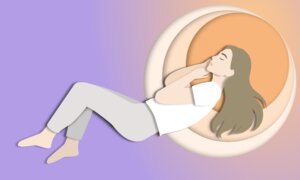The average person spends around one-third of their life sleeping. During that time, our minds conjure up entire worlds—some brilliant and unforgettable, others slipping away the moment we wake. What if you could make the most of these lost hours by remembering more of your dreams?
Scientists have long been fascinated by why some people recall their dreams in high-resolution detail while others struggle to remember anything. New research on why we dream, who remembers dreams more, and how to enhance dream memory is slowly demystifying the elusive phenomena.
Dreams Throughout History
Humanity has been captivated by the meaning of dreams for thousands of years. For instance, in ancient Chinese culture, dreams were seen as messages from the spiritual realm, offering insights into the future.
In ancient Egypt, priests kept papyrus dream books in which they speculated dream’s symbolic interpretations.
The tradition of analyzing dreams later evolved into more structured research. In 1893, Mary Calkins, an American philosopher and psychologist, conducted an experiment in which she roused people by candlelight each night for six to eight weeks to ask whether they were dreaming.
“Sometimes the slight movement of reaching for paper and pencil or of lighting one’s candle seems to dissipate the dream-memory, and one is left with the tantalizing consciousness of having lived through an interesting dream experience of which one has not the faintest memory,” Calkins wrote in her report.
By the mid-20th century, dream research became an official neuroscientific discipline. The discovery of rapid eye movement (REM) sleep in 1953 suggested that the most vivid dream recall happened when participants were roused from REM sleep. While this suggested that dreaming was exclusive to REM sleep, since then, research has shown that dreaming occurs during many sleep stages—and more so within certain groups of people.
Why Do We Dream?
Dreams are essential for emotional processing, according to Jing Zhang, a researcher at Harvard Medical School and Massachusetts General Hospital. Her recent research published in Nature Scientific Reports shows that dreams are akin to “overnight therapy.”
In the study, Zhang and her colleagues asked participants to view emotionally disturbing images—such as scenes of violence or disaster—alongside neutral images—such as everyday objects. The next day, those who recalled their dreams showed a distinctive pattern: They maintained stronger memories of the emotionally disturbing images but showed less emotional distress when viewing them again. Meanwhile, their memories of neutral, emotionally insignificant images had faded.
This selective retention suggests dreaming helps the brain prioritize and process emotionally significant experiences. Without dreams, Zhang suggests, people could get “stuck in emotional events,” unable to move past difficult experiences.
However, not everyone thinks dreams provide a mechanism for psychological healing. Katja Valli, who holds a doctorate in psychology and is an associate professor of cognitive neuroscience at the University of Skovde, offers a contrasting view.
Valli told The Epoch Times that while dreams reflect people’s emotional and psychological well-being, trauma can disrupt this process, causing dreams to replay traumatic experiences unceasingly, keeping the memory “active and fresh” rather than healing it.
Valli’s research supports the “threat simulation theory”—that dreams function as an evolutionary mechanism preparing us for potential dangers. Akin to how pilots train in flight simulators before facing real emergencies, our dreams create realistic scenarios that help us mentally rehearse threats. These nighttime practice runs may leave us better prepared when similar challenges arise in waking life—our brains essentially run fire drills while we sleep.
Why Do Some Remember?
Everyone dreams every night, but not everyone remembers their dreams.
A 2025 study by the IMT School for Advanced Studies Lucca in Italy suggests that dream recall reflects an interaction among cognitive traits, personal attitudes, and sleep dynamics.
The researchers found that several elements—from environmental factors to individual characteristics—determined the capacity for dream memory.
The study concluded that participants who were prone to daydreaming and mind-wandering and had a positive attitude toward dreaming were more likely to remember their dreams.
Valli, who was not a part of the study, commented, “The personality traits of openness to experience, creativity, and thin psychological boundaries ... predict higher dream recall, while neuroticism is related to a higher nightmare recall frequency.”
Younger participants and those who slept lightly for longer periods of time had higher rates of dream recall. Older participants were often roused with the feeling that they had dreamed but lost the memory of the dream itself—a phenomenon called “white dreaming.”
Seasons play a role, too. Participants remembered fewer dreams in the winter than in spring and autumn, which the authors inferred could be caused by fluctuations in sleep cycles, light exposure, or mood.
Dreams as Portals to the Future
Ancient Chinese civilization was not the only culture that believed dreams could foretell the future.
“Precognitive dreams are a very common aspect of the human experience,” Eric Wargo, a science writer who holds a doctorate in anthropology from Emory University, told The Epoch Times. He noted that one-third to one-half of people surveyed reported having precognitive dreams, and nearly all cultures believe these dreams hold truths.
He believes that the accumulation of evidence and testimonies of individuals are enough to warrant serious consideration.
Wargo finds the most compelling evidence for dream precognition not in psychology labs but in emerging physics research exploring “retrocausation”—the concept that future events might influence the past. Indeed, recent breakthroughs in quantum computing, quantum biology, and quantum physics may converge on potential mechanisms for how information might travel backward in time.
Quantum processes may explain how our brains process information during sleep. When we dream during REM sleep, neurons rewire as memories form and consolidate. This process depends on microtubules—tiny tubular structures within brain cells that some researchers believe may function like quantum computers.
If microtubules are indeed minuscule quantum computers, noted Wargo, they might send information backward in time, allowing future experiences to subtly influence us—manifesting in dreams, creativity, or unconscious patterns of thought.
“I think precognition is probably an aspect of memory—‘memory for things [of the] future,’” Wargo said. “Dreams mnemonically encode ‘memories from the future’ as well as recent (past) events.”
How to Enhance Dream Recall
Countless studies have shown that keeping a dream diary improves your recall, as does consciously altering your attitude toward remembering dreams.
Additionally, mugwort has been traditionally known to reliably enhance dreams and dream recall.
Zhang, Valli, and Wargo recommend consistent practice to improve dream memory. After recording dreams in detail in a dated journal, Wargo said to reread records from that morning and the previous days before going to bed—a crucial step in creating greater recall that people often miss. He encourages reflecting on connections between the dreams in your journal and experiences in your waking life.
Wargo also recommends cultivating a daily meditation practice to develop mindfulness and the muscle of attentional focus rather than drifting away in an internal monologue or distractions. Unplugging from devices that scatter attention can also help develop that focus, Wargo added. Similarly, Zhang advises waking up without an alarm because the cortisol spike brought about by the sudden noise leads one to instantly forget their dream.
Whether fleeting or vivid, forgotten or carefully recorded, dreams shape your mind and waking life in ways we are only beginning to understand. They help you process emotions, explore new ideas, respond more effectively to danger, and—perhaps—glimpse the future. With the proper attention, you may be able to unlock more of your own dream world.
Tonight, as you drift off, ask yourself: What will your sleeping mind reveal?














